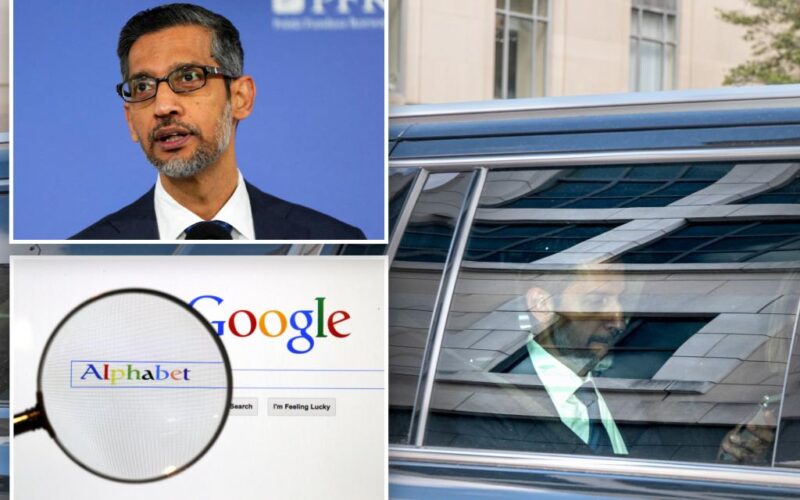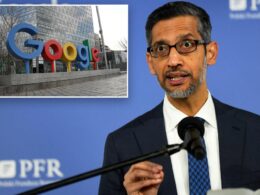Google CEO Sundar Pichai tried to convince a federal judge on Wednesday that the Justice Department’s proposed plan to break up its search monopoly would have “many unintended consequences.”
The DOJ has asked US District Judge Amit Mehta to approve several remedies, including a forced divestment of Google’s Chrome web browser and ordering the company to share data on search results and indexes with rivals to boost competition.
Pichai, testifying in Google’s defense in Washington federal court, called the data-sharing requirement “extraordinary” and argued that it would result in a “de facto divestiture” of the company’s online search business.
“It would be trivial to reverse engineer and effectively build Google search from the outside,” Pichai said.
“If approved, the remedies would make it “unviable” for Google “to invest in R&D the way we have for the past two decades,” the CEO added.
DOJ attorneys wrapped up their case earlier this week in the historic remedies phase, which began on April 21 and is expected to last roughly three weeks. Mehta already ruled last August that Google was a “monopolist” over online search and has sole discretion to determine the best way to stop its anticompetitive practices in the non-jury case.
While on the stand, Pichai argued that the DOJ’s proposals were even more far-reaching than the European Union’s Digital Markets Act – a wide-ranging law aimed at internet gatekeepers that has drawn criticism from President Trump, Bloomberg reported.
Pichai also testified that Google was aiming to reach an agreement with Apple to integrate its Gemini AI chatbot on iPhones.
Aside from the Chrome divestment and data-sharing, the DOJ has argued that Google should be barred from paying billions to Apple and other partners to ensure its search engine is enabled by default on most smartphones.
Pichai defended those partnerships, arguing they allowed smartphone makers to support the Android software ecosystem.
Mehta appeared skeptical of that argument.
“If Google is able to continue to pay for defaults, how could any other competitor possibly pay as much as Google is able to pay?” Mehta asked at one point.
The feds have also floated the possibility of forcing Google to divest its ownership of the Android operating system if initial remedies prove ineffective in addressing its monopoly.
DOJ attorneys also warned that Google is already leveraging artificial intelligence as a “method to access search” and said any remedy should be “forward-looking and not ignore what is on the horizon.”
Google’s legal team has claimed that the DOJ’s proposals are too extreme.
The company has said a forced selloff of Chrome and Android would “break these platforms,” put US national security at risk and potentially allow China to leapfrog the US in the race to develop AI and other key technologies.
DOJ antitrust chief Gail Slater shot down that argument in a speech outside the DC courthouse last week.
“You know what is dangerous? The threat Google presents to our freedom of speech, to our freedom of thought, to free American digital markets. You know what is irresponsible? Leaving Google’s monopoly abuse unaddressed,” Slater said.
With Post wires








